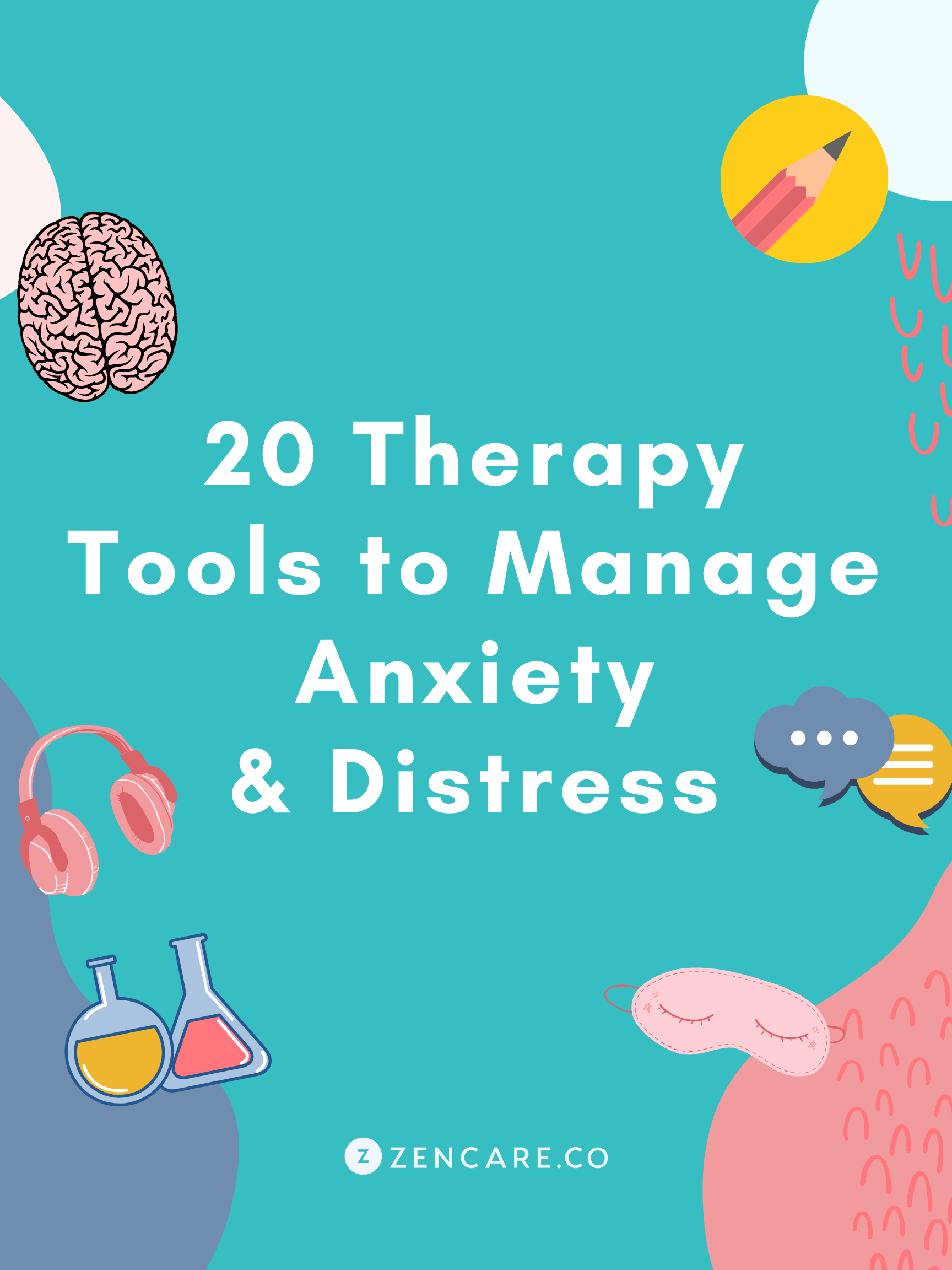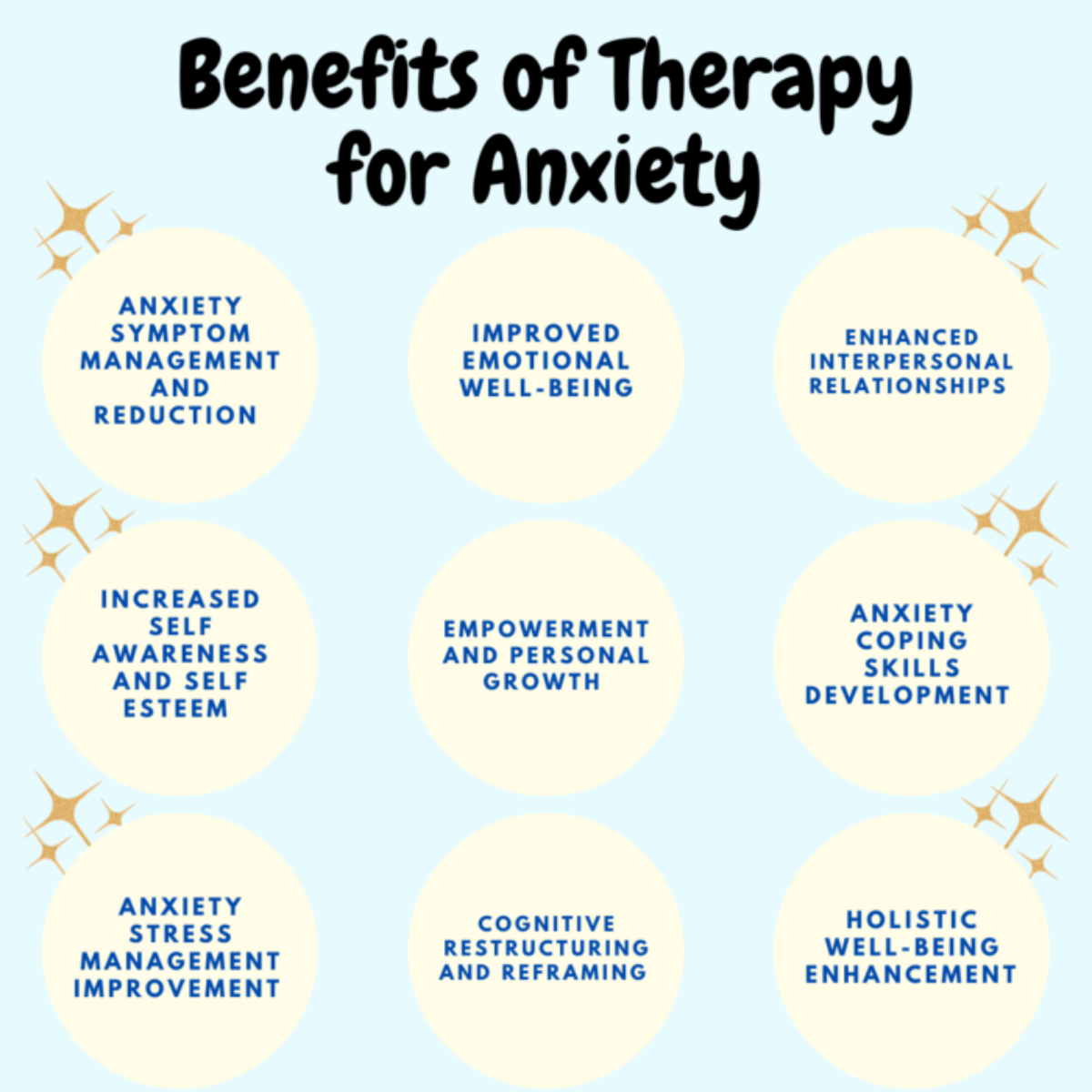Speak with a licensed therapist for anxiety and regain peace of mind
Speak with a licensed therapist for anxiety and regain peace of mind
Blog Article
Checking Out Different Strategies in Counselling for Anxiety Disorder for Long Lasting Adjustment
When tackling anxiety disorders, it's important to explore a selection of counseling methods. Each technique provides one-of-a-kind insights and devices to aid you handle your signs and symptoms effectively. You might find that combining techniques can yield the most effective results. Comprehending the subtleties of these approaches is key to fostering long-term adjustment. Suppose the appropriate mix could launch a new level of psychological health for you?
Understanding Anxiousness Disorders: A Short Introduction
Stress and anxiety disorders, which influence numerous people worldwide, can significantly impact day-to-day live. You could experience frustrating feelings of fear or fret that appear uncontrollable. These feelings can bring about physical signs like an auto racing heart, sweating, or also lightheadedness. Common kinds of anxiety disorders consist of generalized stress and anxiety disorder, panic problem, and social stress and anxiety condition. Each has unique indicators, however they all share a propensity to interrupt your routine and relationships.Understanding the source of your stress and anxiety is vital. It might stem from genetics, mind chemistry, or life experiences. Acknowledging your triggers can aid you manage your actions better. It is very important to keep in mind that you're not the only one in this struggle. Lots of people encounter similar challenges, and looking for aid is a solid step towards feeling better. By discovering stress and anxiety conditions, you're already on the course to understanding and managing your condition better.
Cognitive-Behavioral Treatment: Testing Unfavorable Thought Patterns
In Cognitive-Behavioral Treatment, you'll begin by identifying the negative idea activates that add to your anxiety. When you identify these ideas, you'll work with changing them with even more positive options. Together, you'll construct effective coping methods to assist manage your stress and anxiety in daily circumstances.
Identifying Negative Idea Triggers

When you experience moments of distress, identifying the specific triggers behind your adverse ideas can be important in taking care of anxiety. Beginning by focusing on circumstances that prompt feelings of concern or worry. Is it a congested room, a forthcoming target date, or a discussion with specific people? Take down these instances in a journal. This will help you determine patterns in your thinking. Notification physical experiences that accompany your negative thoughts, like an auto racing heart or rigidity in your breast. By identifying these triggers, you obtain insight into what's fueling your anxiety. Understanding these links is the very first step in challenging those ideas and inevitably gaining back control over your emotional responses.
Changing Thoughts With Positives
Testing unfavorable idea patterns is a vital action in transforming your frame of mind and reducing stress and anxiety. You might frequently discover yourself entraped in cycles of insecurity or devastating thinking. Rather than letting these ideas determine your sensations, practice replacing them with positive affirmations or practical options. For example, when you assume, "I can't handle this," move it to, "I can take care of difficulties one action each time." This straightforward change can significantly impact your mood. Consistently identifying and responding to these unfavorable thoughts aids produce a much healthier inner discussion. Keep in mind, it takes some time and effort, but regularly exercising this method can cause enduring change, encouraging you to deal with anxiety with restored self-confidence and durability.
Building Coping Approaches Together
Changing unfavorable thoughts is only the beginning of taking care of anxiousness properly. To develop enduring modification, you need to build coping strategies that empower you. Cognitive-Behavioral Treatment (CBT) helps you recognize and challenge those purposeless thought patterns. With each other, you and your therapist can discover how these thoughts impact your sensations and behaviors.Start by establishing functional methods, like journaling or mindfulness exercises, that allow you to confront anxiousness head-on. When you encounter your worries progressively, you'll discover to respond differently.

Mindfulness and Acceptance-Based Approaches: Growing Present-Moment Awareness
As you navigate the intricacies of anxiousness, incorporating mindfulness and acceptance-based strategies can significantly boost your ability to grow present-moment awareness. By concentrating on the here and currently, you'll locate that you can observe your thoughts and sensations without judgment (Counseling services for anxiety). This practice assists you recognize your anxiety without feeling bewildered by it.Engaging in mindfulness exercises, such as deep breathing, body scans, or assisted reflections, allows you to ground yourself in your existing experience. Acceptance-based strategies motivate you to accept your feelings instead than deal with against them. When you accept your feelings, they shed their power over you.Incorporating these techniques into your everyday regimen can change just how you react to stress and anxiety. You'll develop strength and discover to browse demanding scenarios with greater simplicity. Ultimately, growing present-moment recognition lays the structure for lasting change, encouraging you to lead a much more fulfilling life
Exposure Therapy: Facing Fears Gradually
Exposure treatment aids you challenge your concerns in a steady method, making it much less overwhelming. You'll discover methods to deal with anxiety-provoking scenarios action by step, while likewise developing coping strategies to manage your reactions. This approach empowers you to take control and lower anxiousness gradually.
Gradual Direct Exposure Strategies

When dealing with anxiety, progressively facing your fears can be an effective method to regain control. This strategy, called steady exposure, includes slowly subjecting on your own to the circumstances or things that activate your anxiety. Begin with less challenging circumstances and slowly work your means up to more tough ones. For example, if you hesitate of public talking, you might start by talking before a mirror, then proceed to sharing ideas with a friend, and eventually address a small team. Each step helps desensitize you to the anxiety, developing your self-confidence over time. Bear in mind, it's necessary to speed on your own and commemorate small triumphes as you relocate through this process, strengthening your capability to take care of stress and anxiety successfully.
Structure Coping Techniques
Building effective coping methods is essential for managing stress and anxiety, particularly as you face your concerns gradually - Counseling services for anxiety. One powerful method is exposure treatment, where you begin by encountering your worries in a controlled manner. Begin with less intimidating situations and slowly work your way up to even more tough scenarios. This gradual direct exposure helps desensitize you to anxiety activates, making them less overwhelming.Incorporate relaxation techniques, such as deep breathing or mindfulness, to relax your mind throughout direct exposure. Track your progress, celebrating tiny victories along the way to boost your confidence. Bear in mind, it's fine to take your time; the goal isn't perfection but consistent renovation. By building these methods, you'll empower on your own to browse anxiousness and embrace life a lot more completely
Psychodynamic Therapy: Revealing Source of Stress And Anxiety
Psychodynamic therapy checks out the subconscious mind, revealing the source of your anxiousness. By examining your ideas, sensations, and previous experiences, this approach aids you reveal underlying problems and unsolved issues that might add to your existing stress and anxiety. You'll work with a therapist to check out childhood experiences, relationships, and psychological patterns that shape your responses today.As you obtain insight into these much deeper layers of your subconscious, you'll start to acknowledge exactly how past occasions affect your present behavior. This understanding can bring about catharsis, allowing you to process emotions you may have suppressed.Through the healing connection, you can likewise determine protection devices that may have developed in time, using a clearer course to change. Inevitably, psychodynamic therapy outfits you with the devices to address your anxiousness at its core, advertising long-term transformation in your emotional health.
Alternative and integrative Methods: Combining Strategies for Greater Efficiency
Integrating various therapeutic strategies can improve your journey towards handling stress and anxiety better. By combining aspects from cognitive-behavioral treatment, mindfulness techniques, and holistic strategies, you can create an individualized method that resolves your special needs. As an example, you could utilize cognitive-behavioral techniques to test negative thought patterns while integrating mindfulness exercises to ground yourself in the existing moment.Additionally, exploring all natural methods such as yoga exercise or reflection can promote relaxation and lower anxiousness signs and symptoms. This mix allows you to create better self-awareness and resilience.Experimenting with these varied approaches can assist you find what resonates most with you. Keep in mind, it has to do with discovering a harmony that functions, as opposed to sticking to a single approach. This integrative method not only uses prompt alleviation however also cultivates long-lasting abilities for taking care of anxiousness, equipping you to reclaim control over your life.
The Role of Support Solutions: Structure Resilience Through Connection
While it could appear that handling anxiousness is a singular trip, having a strong support system can play an essential role in your strength. Surrounding on your own with compassionate friends, household, or support teams creates a risk-free space where you can openly share your experiences and feelings. You remind on your own that you're not alone in this struggle.These partnerships supply support and can supply sensible coping strategies that have counselling for anxiety disorder functioned for others when you connect with others. It's likewise a possibility to get viewpoint; pals can help you see situations in a different way, lowering feelings of isolation.Moreover, emotional support cultivates a feeling of belonging, which can greatly alleviate stress and anxiety symptoms. By leaning on your support group, you can construct durability and deal with challenges better. Remember, connecting for aid signifies toughness, and it can make all the distinction in your journey toward handling stress and anxiety.
Often Asked Questions
What Are the Typical Symptoms of Stress And Anxiety Problems?
You may experience uneasyness, fatigue, trouble concentrating, irritation, muscle mass stress, and rest disruptions. Physical signs and symptoms can include rapid heart beat, sweating, and trembling. Acknowledging these indications early can aid you seek ideal support and treatment.
Just How Lengthy Does Therapy Commonly Last for Stress And Anxiety Problems?
Therapy for anxiousness conditions generally lasts anywhere from a couple of weeks to a number of months. It actually relies on your individual requirements, progress, and the methods your specialist makes use of to assist you manage your stress and anxiety successfully.
Can Drug Be Used Alongside Therapy for Anxiety?
Yes, medicine can absolutely be made use of along with treatment for anxiety. Combining both strategies typically enhances treatment performance, aiding you manage symptoms while checking out underlying issues through counseling (Counseling services for anxiety). Always consult your doctor for personalized recommendations
Exist Self-Help Approaches for Handling Anxiousness?
Yes, there are a number of self-help techniques for managing anxiousness. You can exercise mindfulness, take part in regular exercise, keep a balanced diet regimen, develop a routine, and make use of deep breathing strategies to assist reduce anxiousness symptoms successfully.
Exactly how Do I Know if I Required Specialist Help for Anxiety?

Report this page